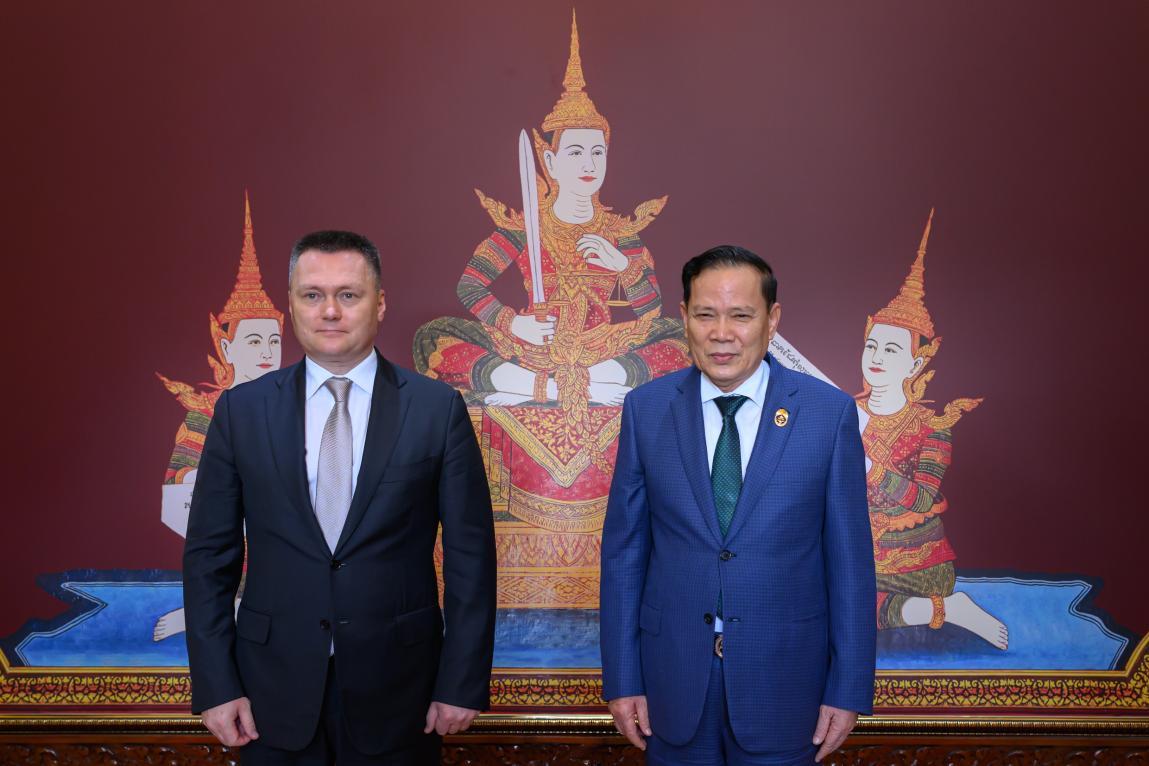News - The Prosecutor General's Office of the Russian Federation
News
- 26 may 2025, 12:03
- The Prosecutor General's Office of the Russian Federation




In his welcoming speech, the Prosecutor General of Russia quoted the President of the Russian Federation Vladimir Putin, who emphasized that Cambodia is a long-standing reliable partner of Russia in the Asian region, and bilateral cooperation is developing intensively on a wide range of issues.
The head of the Russian supervisory agency said that the most important area of work of Russian prosecutors for many decades has been participation in court proceedings. Also, the Prosecutor General's Office of Russia occupies a leading position in ensuring law and order in the Russian Federation, has extensive powers in criminal, civil, administrative and arbitration proceedings, represents the interests of the state in international and foreign judicial bodies and arbitrations.
"Russian prosecutors in the broadest sense are involved in the formation of judicial practice, including in the preparation of explanations for judges, reviews and acts of official interpretation issued by the Supreme Court of the Russian Federation. My official representatives work in the highest judicial authorities on a permanent basis," the Prosecutor General of Russia said.
Having told about the departmental University of the Prosecutor's Office, which is one of the leading scientific and educational centers in the field of legal research, Igor Krasnov suggested that Chiv Keng organize cooperation on this track as well, including through joint forums and research. "The exchange of experience on issues of digitalization of justice is no less important," noted the Prosecutor General of Russia.
The head of the Russian supervisory agency, at the end of the meeting, expressed confidence that there are good prospects for developing a professional dialogue between the Prosecutor General's Office of Russia and the Supreme Court of Cambodia, which can contribute to the development of employees' competencies, improving their qualifications, and improving national legislation and practices.
The Prosecutor General's Office of the Russian Federation
26 may 2025, 12:03
Negotiations were held between Igor Krasnov and Chiv Keng, President of the Supreme Court of the Kingdom of Cambodia
In his welcoming speech, the Prosecutor General of Russia quoted the President of the Russian Federation Vladimir Putin, who emphasized that Cambodia is a long-standing reliable partner of Russia in the Asian region, and bilateral cooperation is developing intensively on a wide range of issues.
The head of the Russian supervisory agency said that the most important area of work of Russian prosecutors for many decades has been participation in court proceedings. Also, the Prosecutor General's Office of Russia occupies a leading position in ensuring law and order in the Russian Federation, has extensive powers in criminal, civil, administrative and arbitration proceedings, represents the interests of the state in international and foreign judicial bodies and arbitrations.
"Russian prosecutors in the broadest sense are involved in the formation of judicial practice, including in the preparation of explanations for judges, reviews and acts of official interpretation issued by the Supreme Court of the Russian Federation. My official representatives work in the highest judicial authorities on a permanent basis," the Prosecutor General of Russia said.
Having told about the departmental University of the Prosecutor's Office, which is one of the leading scientific and educational centers in the field of legal research, Igor Krasnov suggested that Chiv Keng organize cooperation on this track as well, including through joint forums and research. "The exchange of experience on issues of digitalization of justice is no less important," noted the Prosecutor General of Russia.
The head of the Russian supervisory agency, at the end of the meeting, expressed confidence that there are good prospects for developing a professional dialogue between the Prosecutor General's Office of Russia and the Supreme Court of Cambodia, which can contribute to the development of employees' competencies, improving their qualifications, and improving national legislation and practices.
All rights reserved

